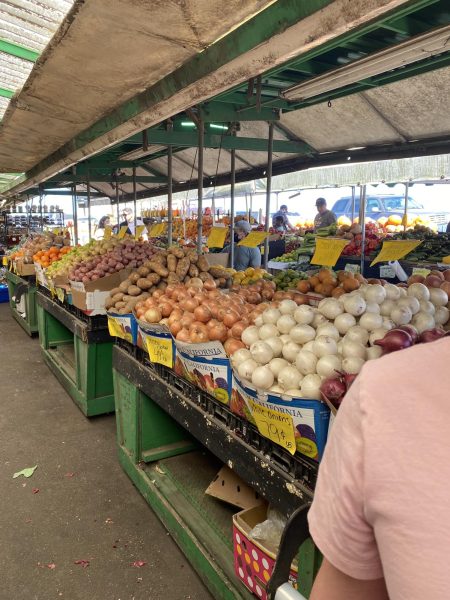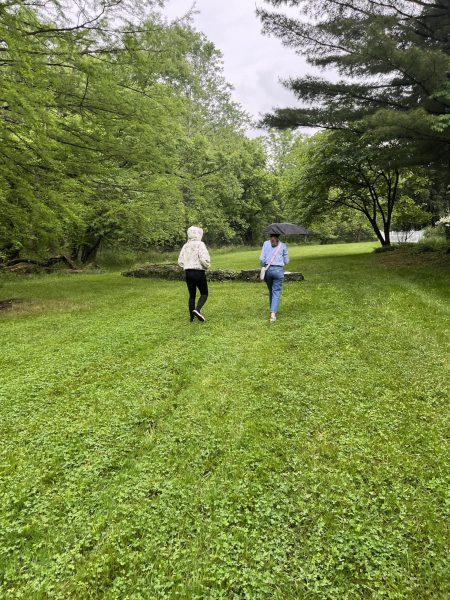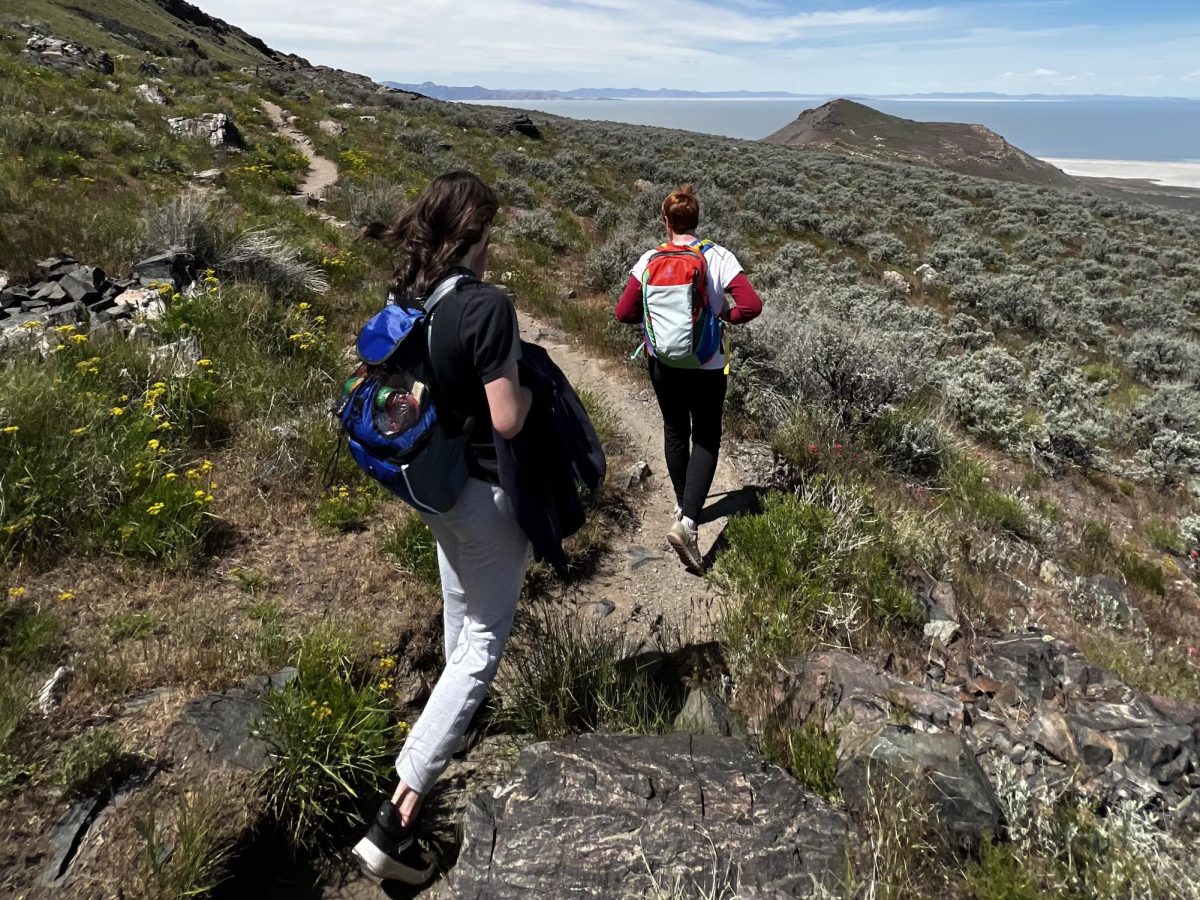Though lessening the most disastrous effects of climate change will require major restructuring of our political economy and a drastic curbage of production and consumption, there are things we can do as individuals today that make a huge difference, some being necessary first steps in bringing about the collective power we’ll need down the line to achieve larger-scale changes. That in mind, here are my top 5 sustainable habits you should consider picking up.
- Reduce the amount of meat you eat.

Eating a plant based diet is one high impact individual action you can take to reduce the amount of greenhouse gases there are in the atmosphere and protect biodiversity.
Vegan diets produce 75% less greenhouse gas emissions than meat-heavy diets. By eating plant-based you could be saving 1,100 gallons of water, 30 square feet of land, and 20 pounds of carbon dioxide every day.
Even though meat only accounts for 18% of the world’s calories, animal agriculture has caused 80% of the Amazon’s deforestation and uses up 83% of the world’s farmland.
You don’t have to completely eliminate meat from your diet, but cutting back could free up land, reduce deforestation, and eliminate the need for as many methane producing cows. Not to mention it’s healthier for you as processed and red meats are linked to an increased risk of cancer, high cholesterol, and diabetes.
- Get to know your neighbors.
Imagine your tail light goes out in your car and you don’t have a ratchet. In our highly individualistic society your first thought might be ordering one or heading to your local hardware store, but chances are you’re not the first person in your neighborhood whose tail light has gone out. Building a network of people you can rely on reduces your individual need for products, saving you money and reducing your consumption.
In the Santa Clara Valley in California there’s a neighborhood composed primarily of people of color and immigrants who are paving the way for an alternative way of thriving. Rather than exchanging monetary currency they exchange social currency, meeting their basic needs in the process. This currency includes cultivating home gardens and sharing their produce with the greater community. Alone, their home gardens couldn’t fulfill a single family’s needs. After all, one can’t subsist only on peppers and tomatoes. However, together everyone can have their needs met as a diversity of crops are shared. The people in Santa Clara Valley have also shared that they’ve built strong social connections as a result, allowing for collaboration outside of food.

Our neighbors are the people we’re shaping the future with. It’s a good idea to get to know them and what their visions are, because we’re going to be working with them regardless. Starting from a place of generosity and mutual respect will be much more productive than working with strangers. Gone are the days of keeping up with the Joneses. When we build strong communities of people who care about and support each other, everyone is better for it.
- Upcycle and mend what you already own.
There have been numerous instances where I stood across from a pile of clothes feeling uninspired about what to wear, fantasizing about shopping for new pieces. However, I’ve been just as frequently surprised by what I can make at home.
As summer has been approaching I’ve been going through the clothes that sat in the back of my closet all winter. One shirt I found had sleeves I didn’t like, so I cut them off and reattached them to a more suitable shirt. Another fix I completed included a pair of jeans I didn’t like the style of, which I then turned into a skirt.
Not all of my changes were radical, though. I also mended the holes in a few pairs of socks with a simple hand stitch.
I am, by no means, a great seamstress. When I cut the sleeves off the first shirt I accidentally cut through part of the shirt I meant to keep and had to mend that too, but I am wearing these pieces that didn’t see the sun for months again. It doesn’t have to be perfect. Though our fast-paced society seems bent on having us forget, quality is often born out of inefficiency at first. There is a lot of wealth to be found in practice.
- Meal plan ahead of time.
Food waste accounts for between 8-10% of greenhouse gas emissions. For reference, this is nearly 5 times as much as the aviation industry. Forget private-jet-flying celebrities, how much food are they wasting? About ⅓ of the food intended for human consumption in the US goes to waste. We can curb this by planning out our meals for the week and preparing food at home more often.
How many of us have gone up and down all the aisles at the grocery store simply tossing whatever looks good into the cart just to come home with an array of ingredients that may or may not make a cohesive meal? How many bags of spinach you’ll “for sure eat this time” end up congealed in the crisper drawer? Conversely, how many of us have plopped down on the couch after a long day at work and decided to just order DoorDash, too overwhelmed to figure out how to plan and prepare a meal?
Meal planning is a cost-effective and sustainable way to prevent waste and overwhelm. My roommate and I have a list of roughly 30 different meals we like to rotate through, which we’ve compiled over the last year, occasionally adding new recipes to the mix. We pick 7 for the week, eating them each twice, once for dinner and again for lunch the next day.
Meal planning doesn’t have to be eating the same thing every day of the week or opting for unseasoned, restrictive ingredients. It can simply mean looking at recipes beforehand and only buying what you need to complete them. With our current system, my roommate and I hardly ever throw out rotten food and having our meals pre-planned takes away the stress of figuring out what to eat every night. Not to mention, only buying what we need has cut our grocery bill by 30 dollars per week, much needed savings for two working college students.
- Spend more time familiarizing yourself with the world you’d like to protect.

Karl Marx was the first to describe a process that’s now known as “metabolic rift.” This process refers to the separation between humanity and the rest of nature due to capitalism. We can purchase computers, clothing, tools, and food at the click of a button without ever considering where those things came from. Even our t-shirts are made from oil drilled from the ground and sewn by people across the Atlantic. Our food passes through numerous other people’s hands before it reaches us, but we forget this. We never seriously consider the fact that nothing we’ve purchased came out of thin air. It was extracted, molded, processed, and refined.
I’m not saying these things don’t have utility, but we should try to remember the earth is not an endlessly exploitable resource designed only for human consumption. We should be giving back as much as we take away, if not more.
You can do this by volunteering with your local community in a myriad of ways. Participate in street cleanup programs, sign up for a shift at a community garden, compost, learn about native plants in your area, eat seasonal produce, or talk to your representatives about regulating harmful industries. The options are endless.
Humans are not above nature, we are nature. As you slow down and notice all the ways in which your environment has supported you, you may find it easier to prioritize protecting it.
At the end of the day, consumers are not the primary actors to blame for climate change, but we are the ones with the power to put pressure on those who write our legislation. Businesses can only run the world as long as we depend on them for everything. By integrating sustainable practices into our individual lives we contribute to a growing body of informed citizens that care about the future of our planet, enabling self-sufficiency and the collective education to demand change.


